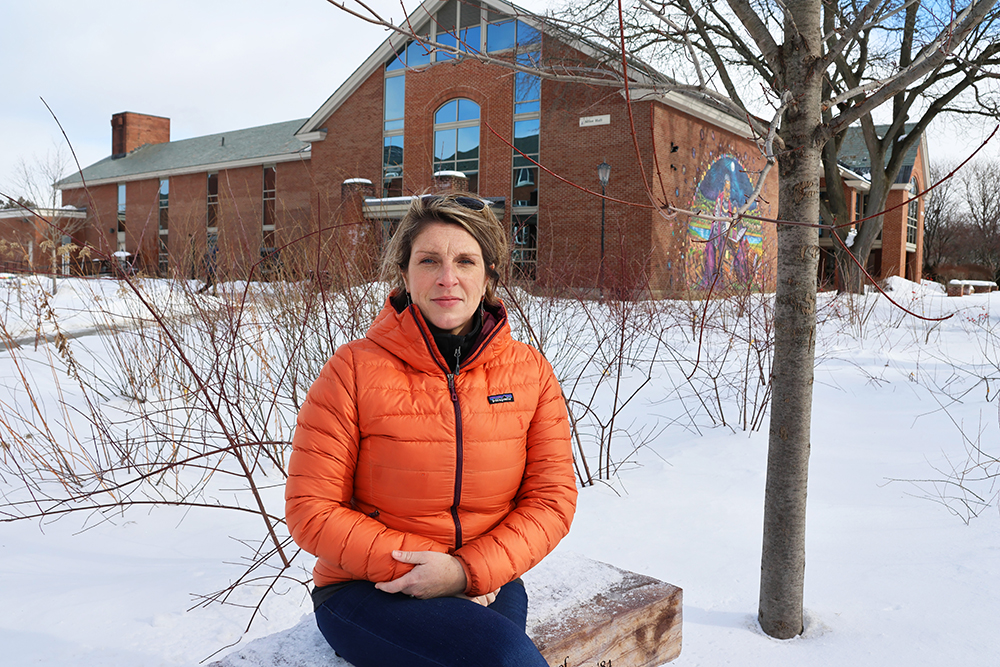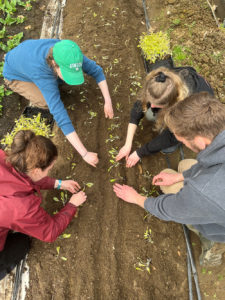
Declan Wlochowski | Staff Writer | dwlochowski@mail.smcvt.edu
The Center for the Environment received a $6.5 million grant earlier this past January, which was signed by Senator Patrick Leahy, a St. Michael’s graduate. This is the largest grant ever received by the college and will provide funding towards environmental causes.
“This very generous funding will have a profound impact on the community and the future of the College,” said President Lorraine Sterritt in an email. “It will provide myriad opportunities for our students, and it will enable the College to think in new and creative ways about how we educate our students and how we connect with other entities. We are thrilled to be given this opportunity to build on the terrific work already being done by the Center for the Environment.”
Senator Leahy graduated from St. Michael’s College in 1961. He served as one of Vermont’s senators since 1975 until he retired in January after signing this grant.
The money was granted as part of the 2023 Omnibus Appropriations Bill, signed on Dec. 29, 2022, and will go directly toward the Center for the Environment. The funding will not be in place until the beginning of next fall semester, according to Kristyn Achilich, Director of the Center for the Environment. Achilich said the Center is in the process of creating a five-year plan that focuses on impacting career development plans, expanding learning and teaching opportunities, increasing community collaboration, and hiring new faculty, staff and student workers.
Angela Irvine, director of Foundation Relations and Sponsored Programs worked closely with Achilich on securing the grant. “The main goal of this project is for it to serve as a transformational opportunity for the college to demonstrate best practices in both teaching and learning through environmental stewardship and career development,” Irvine said. “This means that the process by which we develop the programs and deliver them to our students of today and the future matters as much, if not more, than the individual elements we’ve proposed.”
The Center for the Environment was founded at St. Michael’s in 2019. “Most of our work is housed in our 3-core programs: stewardship, farm & food, and sustainability. And those programs happen here on campus in our core classrooms, the Farm, the Teaching Gardens, the Natural Area, our Sustainable Campus initiatives we use as a living laboratory, and off campus in our local and global communities,” Achilich said. This funding will enhance all of these qualities of the Center for the Environment and may lead to a greener campus.
Students who are involved in both the farm and at the Center for the Environment will be able to explore their passions in a more expansive way. Peyton Edwards ’23, president of Green-Up and volunteer at the Farm, said she is excited to see how this grant will environmentally impact the campus and other students like herself. “My involvement with the Center for the Environment has mainly been through the farm program and it has been one of the best experiences I’ve had at St. Michael’s. I’m excited to see what new opportunities arise with this grant,” Edwards said.

The Center for the Environment has many ways students can participate in environmental action. There are regular open events in the Teaching Gardens, the Natural Area and the Farm. Students can join programs like MOVE and Green-Up that have a large connection with the Center for the Environment. There is also a weekly pick-up for CSA members and for people interested in purchasing food from the farmstand. “Other students can get involved at the farm through Outdoor Volunteer Efforts (OVE) on Fridays from 3:00-5:00,” Edwards said.
Based on the plan development that Achilich describes, students will have a greater chance at discovering career, educational, and scientific opportunities that will benefit the college and the local community as a whole. “We will realize the funding next fall at which point we can begin to collaborate on and off campus to expand and enrich the work of the Center for the Environment as we know it today,” Achilich said.

